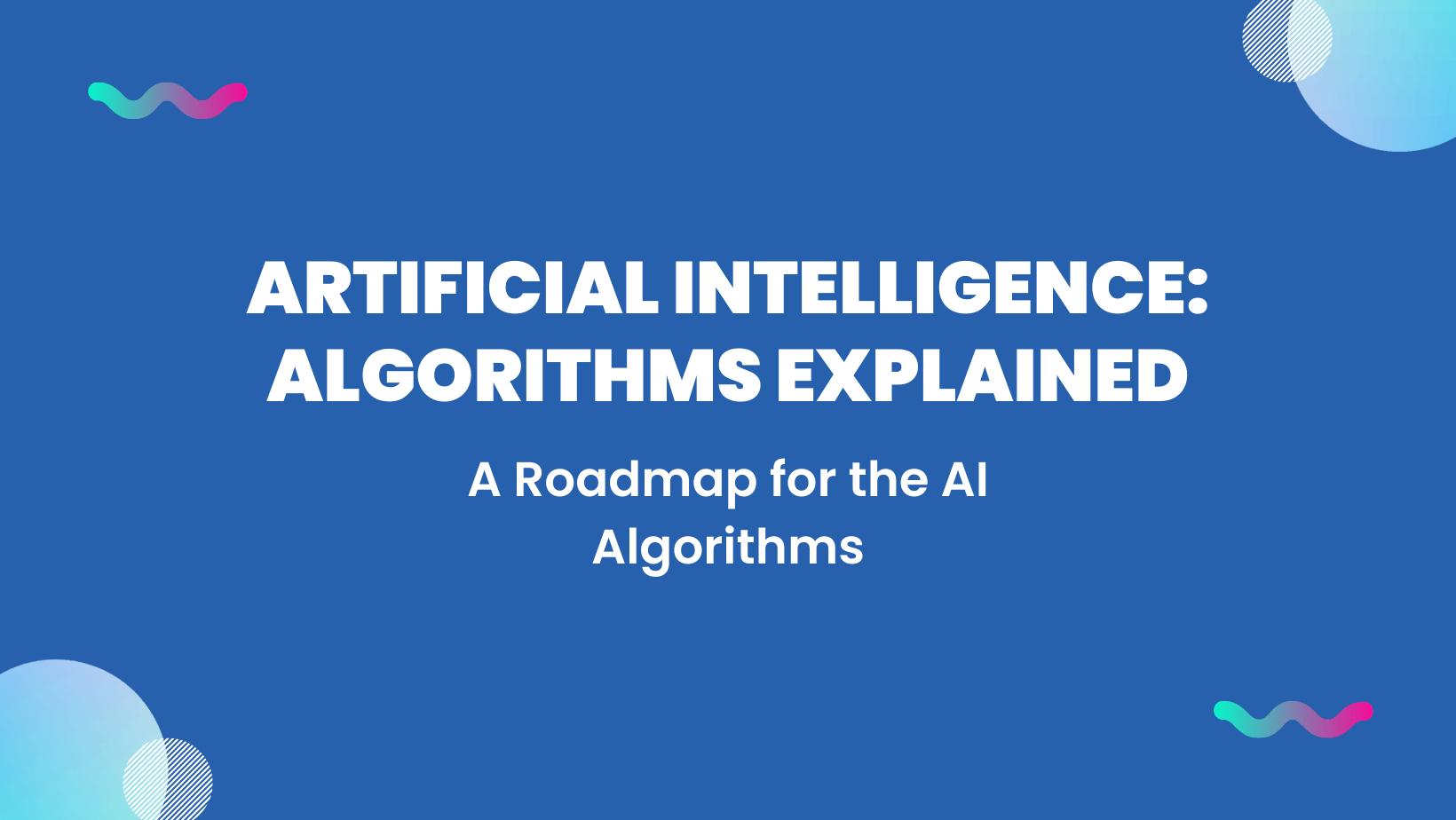The world is experiencing the immense capability of Artificial Intelligence in different fields.
In other words, we are entirely surrounded by AI in our daily lives.
online pharmacy purchase flexeril online best drugstore for you
For instance, ever wonder how Instagram recommends people we know on the suggestion list or Gmail automatically filters out the email we received!
These are common examples of AI algorithms.
From mobile applications to traffic signals, algorithms are helping greatly to make things easier and more efficient at the same time.
So, this blog is a roadmap to understanding AI algorithms along with their type and some of the real-world AI applications.
What is an algorithm?
Let’s continue with the example of Instagram.
To open someone’s story, we need to click on their profile right?
In the technical sense, we have to give instructions to Instagram for a specific task.
So basically an algorithm is one type of instruction that permits a computer or machine to execute a specific calculation in order to perform a specific task.
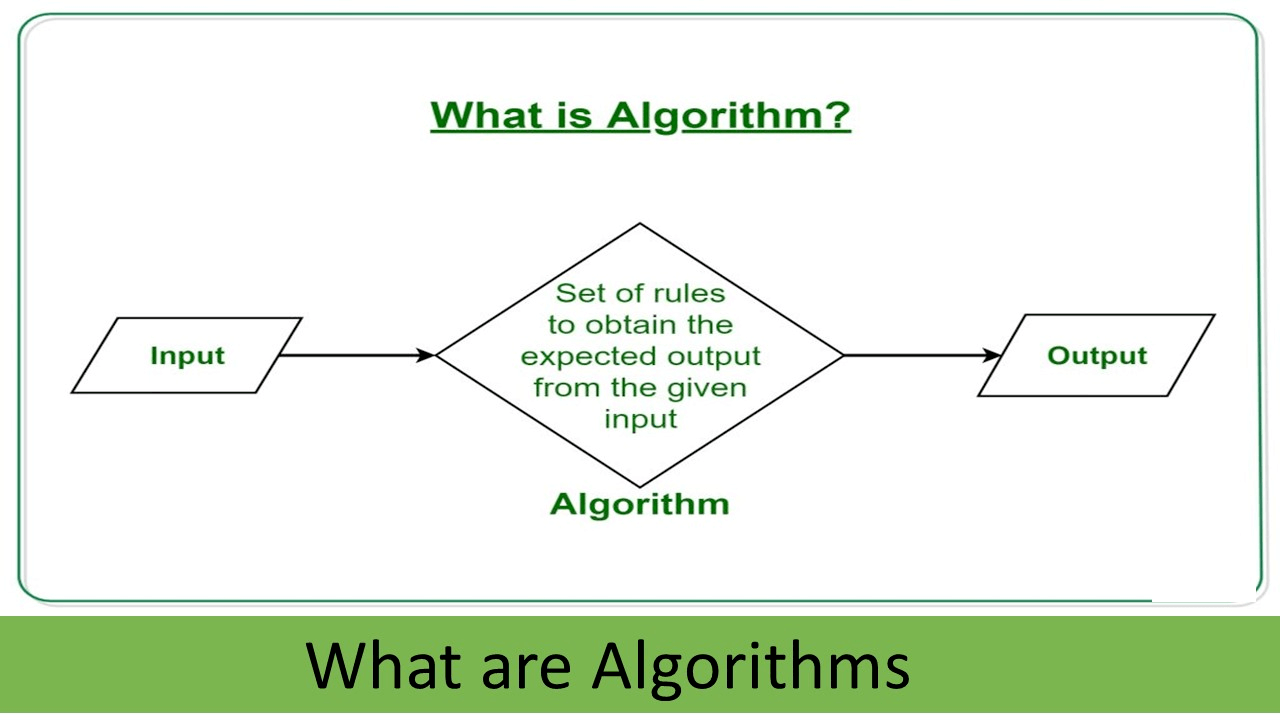 Just like without being touched on the icon you can’t open the mobile app, in the same manner, the machine can’t perform a specific task without giving instructions.
Just like without being touched on the icon you can’t open the mobile app, in the same manner, the machine can’t perform a specific task without giving instructions.
Instruction lets machines to,
- What to do?
- How to do it?
- And when to do it?
How does an AI algorithm work?
AI algorithm is an extended subset of machine learning that enables the machine or computer to learn and operate by itself.
The instruction and data play a big role in that.
It helps the machine or computer to gain more knowledge and perform tasks in a smarter and efficient manner.
Let’s understand this with a quick example.
We both are familiar with Alexa.
Alexa has the ability to understand and collect your instructions in order to deliver more accurate and convenient results over time.
When you tell Alexa to play your favourite song, it examines and stores the data of your instruction tone and voice so that AI algorithms can create a music track accordingly.
What are the most common algorithms used in AI?
#1. Classification algorithms:
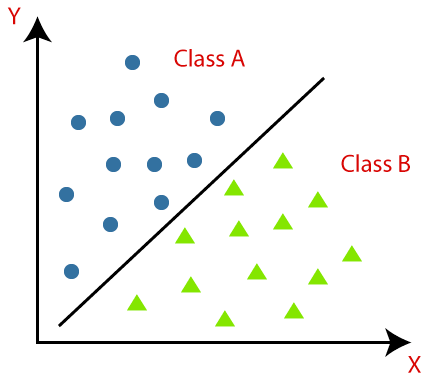 It is part of supervised learning (An approach to creating an AI).
It is part of supervised learning (An approach to creating an AI).
Classification algorithms are utilized to split two variables into different categories in order to predict the class as per the given instruction or input.
For instance, Gmail identifies whether the receiving email is spam or not by using classification algorithms.
Explore the types of classification algorithms.
- Naive Bayes
- Decision Tree
- Logistic Regression
- K-Nearest Neighbour
- Support Vector Machine
- Random Forest
#2. Regression Algorithm:
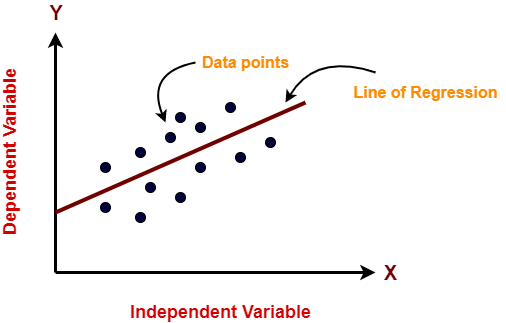 This algorithm aims to anticipate future outcomes using data.
This algorithm aims to anticipate future outcomes using data.
For instance, predicting the weather forecast, stock market pricing etc.
Explore the types of regression algorithms.
- Linear regression
- Lasso regression
- Logistic regression
- Multivariate regression
- Multi regression algorithm
#3. Clustering algorithm:
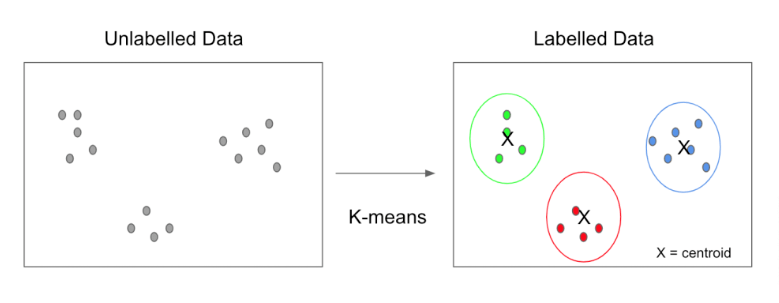 It is part of unsupervised learning.
It is part of unsupervised learning.
This algorithm is used to organize the data into groups as per their similarities.
online pharmacy purchase lasix online best drugstore for you
For instance, identifying fake news, spam filters, identifying criminal activities, etc.
Explore the types of clustering algorithms.
- K-means clustering
- Fuzzy C-means algorithm
- Expectation-maximization algorithm
- Hierarchical Clustering Algorithm
#4. Genetic algorithm:
The genetic algorithm is inspired by Darwin’s theory of natural evolution.
It is used to identify or analyze the most accurate or high-quality solutions.
Genetic algorithms are used by almost every industry to determine accurate and reliable information in the form of data.
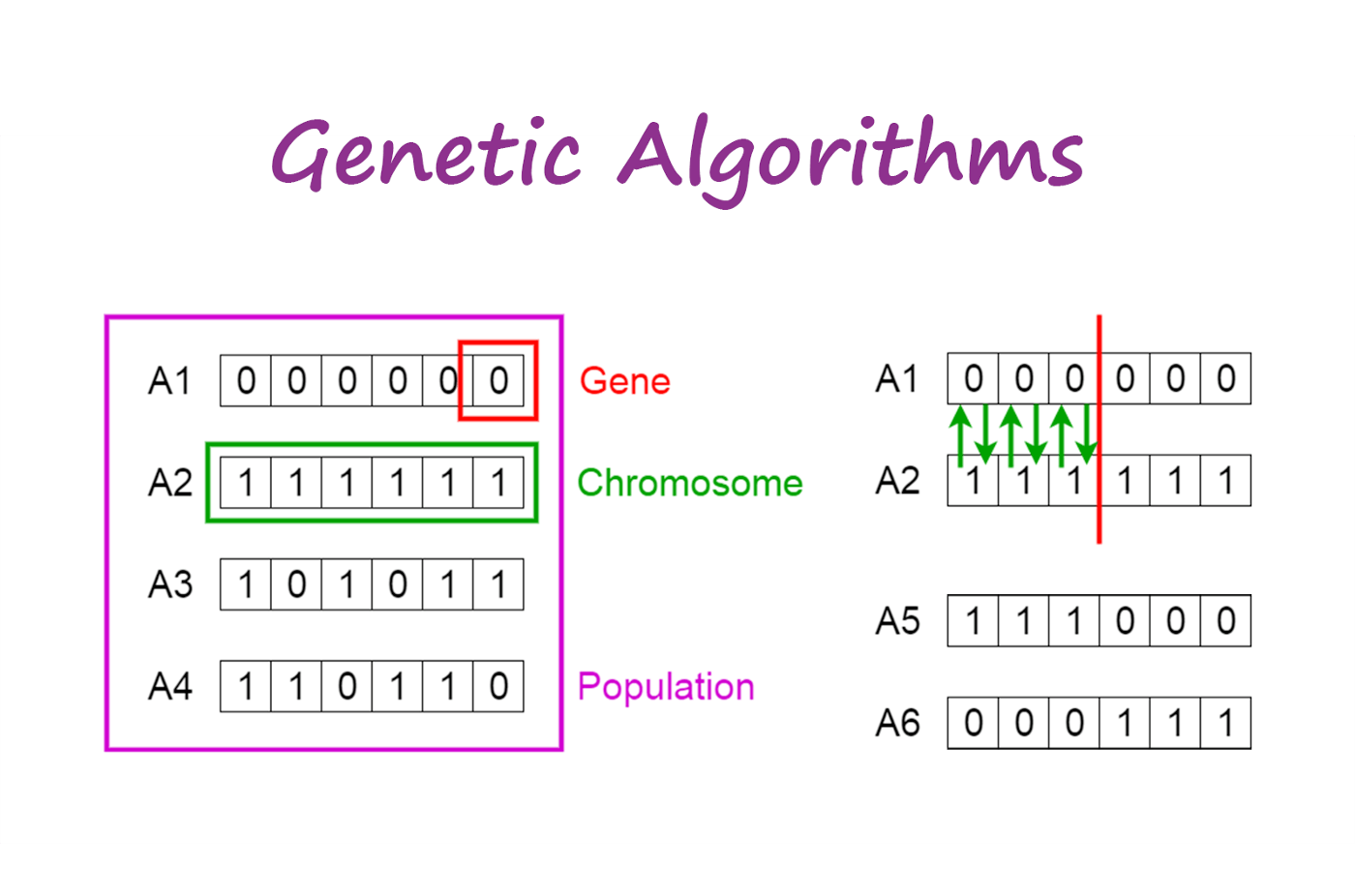 Why is it important to use AI algorithms?
Why is it important to use AI algorithms?
In one sentence – to make our life easier.
AI is becoming more important in almost every sector as it is decoding the modern requirements with hassle-free and affordable solutions.
For instance,
- Automation
- Research and development
- Healthcare drug discovery
- Aerospace
- Engineering
These are some of the most common examples of AI algorithms.
Undeniably, we are surrounded by a massive amount of data which has the potential to help us in several ways.
A new discovery in various fields can improve our lives without adding any complexity.
The role of AI algorithms in healthcare
AI is now an integral part of our daily life.
From smartphones to healthcare systems, AI algorithms are making everything easier for us in order to improve our lives.
AI algorithms help us in a variety of ways in every sector.
Let’s take a look at how it helps the healthcare industry.
- Automating the task for the healthcare industry in order to speed up the care delivery and patients outcomes
- Predicting the care outcomes for the patients’ various health-related concerns
- Assisting the healthcare professional in their clinical trial
- Finding new ways to diagnose the patients in a faster and more accurate manner
- Creating more streamlined workflows for the medical and administrative staff
- Helps in automating the supply chain and pharmacy inventory management system to save time and money
This way, it is helping the healthcare providers to focus more on the patient care experience and quality treatment.
Okay. So, let’s talk about how it helps in the treatments?
AI algorithms have created a positive impact on the healthcare system.
And here are some examples of it.
#1. Healthcare chatbots for patients and healthcare professionals:
- Appointment booking assistant for the patients
- Gives answers to every patient’s health-related query
- Provides real-time condition of the patient to medical staff
- Saves both time and money
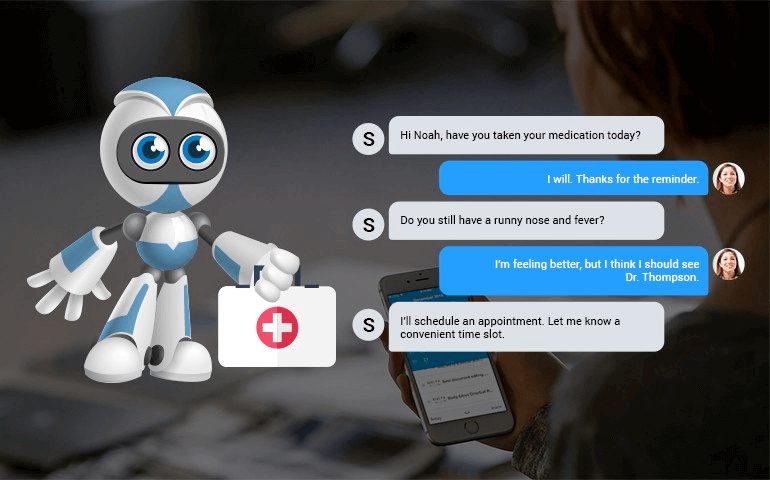 #2. Virtual assistant:
#2. Virtual assistant:
- Comprehensive assistant to help the medical experts in virtual care
- Faster and efficient access to the patients’ medical data
- Predicts the outcome to improve the quality of care experience
#3. Healthcare IoT:
- Examine and collect the real-time vital body signs
- Share the data with the other IT systems
- Improve patient engagement in their care solutions
#4. Healthcare app and software:
- Enhance the performance of the IT solutions
- It improves the accuracy of digital healthcare services.
- Symptom checking and predicting the accurate outcome
Possibilities are endless for AI in healthcare
Healthcare is moving forward rapidly as AI is taking charge of many care delivery solutions.
Digital health tech is one of them.
online pharmacy purchase valtrex online best drugstore for you
For instance, healthcare app development, software development, automation, IoT applications, chatbots, and the list goes on and on.
Thus, healthcare startups are focusing more on the AI and ML-based solutions to help everyone in the same healthcare environment.
Last but not least,
“Predicting the future isn’t magic, it is Artificial Intelligence”. – Dave Waters


